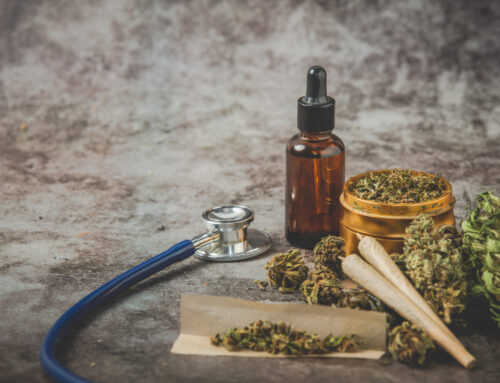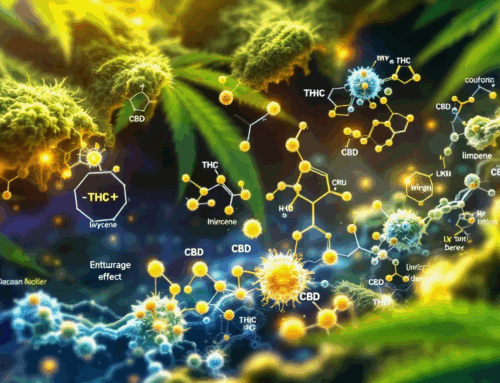The rising demand for medicinal marijuana in autism symptom management has led to research in this field. If considering this treatment for yourself or someone close to you… It’s essential to understand the patient-doctor relationship. Having a conversation concerning the treatment of autism with medical marijuana is not a conversation. It requires prior consideration of various facts. It is essential to understand the concerns of their patient while fully taking into account the physician’s knowledge. This document is designed to simplify this process for you.
Understanding Medical Cannabis and Autism
Currently, Medical Marijuana has started garnering people’s interest because of its possible benefits. One of the uses of such marijuana is Autism Spectrum Disorder (ASD) and more specifically, easing anxiety, aggression, and socialization problems. Although more research is needed, certain specialists claim that medical marijuana can relieve distressing symptoms of users diagnosed with autism.
Basically, medical marijuana has some components like the cannabinoids THC and CBD, since they are medicinal compounds. In this case, they target the endocrine system solely and help in relaxing, restoring, and easing lost functions. They are especially effective in relieving pain, calming the mood, and restoring lost functions. Particularly with autism, these relationships can help with some aspects of behavioral mood control and even emotional control.
Why Consider Medical Marijuana for Autism?
Every individual suffering from autism present a different set of symptoms which is why any therapy would need a customized approach. Symptoms such as social awkwardness, excitability, cognitive problems, difficulty in communication, and Resource behaviors are usually present. It is common for individuals to suffer anxiety and have sleep problems as well.
Medical cannabis may serve as a natural substitute for traditional medications. CBD is proven to help relieve anxiety as well as improve sleep. On the other hand, THC could control aggression and agitation. Still, the way a person interacts with marijuana or any other drug is different for everyone. There is, in fact, more work yet to be done in understanding the risks and the developments that would come from this.
Starting the Conversation with Your Doctor
You should never disregard talking to your doctor first about getting medical marijuana for autism. Keep in mind that your physician is there to advise you according to your health and medical history. With that in mind, here’s the approach for the discussion:
1. List Relevant Questions
Write down instructions for your specialist. In your doctor’s office, you may wish to understand more about the effects of cannabis on autism, cannabis and autism, and other medications, and what autism medications interact with cannabis. Inquire with your physician about the association of autism and more scientific aspects of cannabis and autism.
2. Give the Physician Pronouns
Using cannabis to help with the effects of autism is something you should consider. Dissociate cannabis and autism with the way it may help, the side effects it may cause, and the legal situation of cannabis in your country.
3. Focus on Planning the Next Steps
It is normal for your physician to tell you all the possible treatment options for autism. This means more than just the traditional therapies and medications, but also the newer and emerging medical cannabis treatment options. Ensure you understand your options, including what each can do and any potential issues or drawbacks they may have.
4. Be Open to Medical Marijuana as a Potential Treatment
If your doctor agrees that you would benefit from medical marijuana, they will refer you to a professional who has experience with the drug. In most states, you must have a card to purchase marijuana legally. Your doctor can help you determine whether obtaining this card is the best decision for you or someone you know.
Obtaining a Medical Marijuana Card
In the states that allow this, you must have a medical marijuana card before purchasing cannabis. The procedure itself consists of a visit to the cannabis doctor by a patient who will analyze their medical background and decide if they, as patients, can benefit from medical marijuana.
To be eligible for a medical marijuana card, patients generally need to suffer from a qualifying condition, which, for many states, includes autism, and provide evidence that traditional treatments have not worked or are bringing on unwanted side effects. If you are approved, you’ll receive a medical card (or cannabis card) that will tell the dispensary which strains of marijuana or medical weed you can have.
What to Expect When Using Medical Cannabis for Autism
When a physician prescribes medical marijuana as treatment, it is important to keep a set of expectations. For every individual, medical marijuana works differently each of them. Every individual goes through the trial and error phase to come to the correct dosage of marijuana and the type needed.
Cannabis can be consumed in different ways, such as smoking or vaping, consuming oils and tinctures, eating edibles, and topical application. Various methods have other types of effects and onset times. For example, edibles usually take longer to be effective but have a longer duration. In contrast, as a result of the processed vapors of the drier, which undergo an instant phase transition and undergo a calm state that takes the heat out of them, smoking or vaping marijuana results in quicker effects.
Potential Side Effects of Medical Marijuana for Autism
Any treatment has its own potential risks, which in the case of medical marijuana may include dizziness, dry tongue, altered appetite, or slowed movement. Any medicinal marijuana treatment can have varying effects on individuals. Especially, High THC concentrates can potentially lead to feelings of anxiety and/or confusion, which is why a steeper low starting point is ideal. As the dose increases, the patient’s symptoms and results must be monitored closely.
If there is effective communication of such measures with the treating physician, a more patient-centric treatment plan can be devised.
The Legal Considerations of Medical Marijuana
Although marijuana for medicinal purposes and use is legal and available across multiple states in the US, its use and distribution are controlled quite rigorously. As every other state has its own regulations, the use or possession of medical marijuana should be cautiously approached. Medical marijuana laws, possession and use prohibition, and restrictions have geographic variations.
Placing a medical marijuana card is an additional requirement for legal purchase. Most doctors are quite comfortable assisting patients in obtaining the cards if they have a prescription for medical marijuana. Having marijuana for therapeutic purposes has to be grasped contextually, using the regulatory processes and legal frameworks in a given state.
Final Thoughts
People who have autism can be treated with marijuana; however, one also needs to find the optimal medicinal approach. The first step is to discuss with the physician why cannabis treatment is adequate. To get a legal prescription, you can visit the attending physician, get diagnosed, and, in a few states, you can also avail of the cannabis card, which is a necessity for legal treatment.
People who have autism can be treated with marijuana; however, one also needs to find the optimal medicinal approach. The balance of treatment for each of the individual patients in the report is what their cannabis and autism specialist is striving to achieve. You and your doctor will work to synthesise the most relevant and verifiable information and treatment options regarding the use of cannabis to treat autism to reach a solid and well-informed conclusion.





